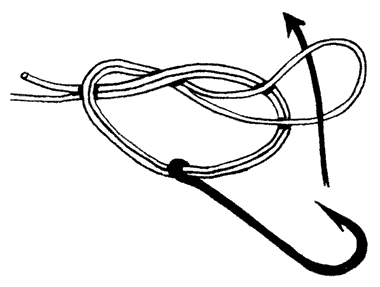22 Things I Learned from Submitting Writing

Re this I thought about this:
1. Early on I sent out a lot of bullshit. I mean I would send out almost anything that seemed done, whether I loved it or not. Later on I began to realize that not only did I rarely receive acceptances for things that I hadn’t put the work on in, I also realized that boy does it suck when you accidentally get something published that you don’t even like.
2. There is a mental diminishing return to publishing. The more you do it the more the feeling is diluted. Thus, there is no rush. It seems really urgent and then it seems less urgent. Being diligent to the point of nearly psycho produces results in that the practice of writing makes you get better and better, but you should never feel shitty for a rejection. It is just another chance to improve. Take that chance.
Noo Duende Edition
I like NOO Weekly when Goodie Mike Young let’s others take over curating for a week. This week it’s Ben Kopel.
Ben says, “consider this the Duende Edition: “Extra! Extra! Bleed all about it!”
See this week shake in the shapes of Graham Foust, Gordon Massman, Chelsea Hogue, LaTasha N Nevada Diggs, Bianca Stone, & Matt Suss.

Do Yo Know Matt Suss? O shit.
You should.
A Review of Your Review: Ben Mirov Reviews Jeff Gordinier’s Review of Chris Martin’s BECOMING WEATHER
 My friend Amy Lawless showed me this review of Becoming Weather by Chris Martin in the New York Times (scroll to the bottom of the article). Here is my review of the review, beginning with an excerpt from the review:
My friend Amy Lawless showed me this review of Becoming Weather by Chris Martin in the New York Times (scroll to the bottom of the article). Here is my review of the review, beginning with an excerpt from the review:
“No, the author of “Becoming Weather” is not the same Chris Martin who is the frontman of Coldplay and the husband of Gwyneth Paltrow. But it’s easy to see how you might leap to that assumption, because what you often find here are the kind of well-intentioned ruminations — “The people I love / lack something sufficient / for the violence of this world” (oh, buck up, people!) — that you might expect from a pop star who lets verse pour forth in his dressing room between bites of a vegan corn dog.”
from Feedback

Three or four years ago, I was reading an ambitious student story that made very little sense to me. The language was pleasing rhythmically, sonically, but it was all fairly abstract, too. I found myself writing again and again in the margins: Could this be stated just a little more clearly? Could this be a little more concrete/precise? On a single page, some version of the preceding two sentences appeared five times, and I began wondering what a text composed of only my marginalia might look like. After all, students most likely read what I write in the margins as if it is its own kind of text, one comment after another after another. I held on to this idea for some time, and then finally, earlier this spring, I began creating texts from some combination of my marginalia and end notes. A part of me worries I’m betraying the confidence students place in me when they so bravely hand over stories they have written, but a larger part of me feels compelled to share the conversation, however seemingly one-sided it may seem, as a way of demonstrating the dynamic exchange that takes place between readers and writers. I’m calling the series of texts “Feedback.”
I don’t mean to be a nudge, but I actually do. If you haven’t filled out my small survey, would you please? I’d like at least 30 more respondents in order to get a proper non-scientific view of how a tiny sliver of the population views the J-O-B word alongside creativity and other such nonsense. I will write an exciting post about this very subject! Including data!
Back to a future

Scat-stacking shitty yesterdays together I go back in time, on my therapist’s chair, retrace particular events in my childhood, and open my eyes to the blurry wet room, depleted and calm. He’s been leaning in, elbow dents on his knees, eyes maybe a little wet too. I am trying to correct the past with my personal fucks capacitor. Lived a dumb tv movie life, or better yet when movies from the past wound up on tv; went to college at an English lit class lived a dumb book life, or better yet when those books wound up as movies; moved to a city for a dumb metrosexual life, or better yet someone tell me what that even means. Maybe, the past unforgiving, you moved from one city to another, kept exchanging cities, trading in your tokens at casino life for better cards, fairer dice, the unsightly decorative carpet under your feet, heads locked in vices in rooms you couldn’t see. And if gambling is our metaphor, I’ll be the old guy at the slot machine, the repetitive injury of his right arm pumping away at some statistical god, awaiting the golden shower of coins which will sound as a tambourine, hey play a song for me, I’m not sleepy and there is no place I’m going to. In 1985, with that preceding Orwellian-slash-Van Halenian year neatly tucked behind us, one Marty McFly disappears from a suburban parking lot at night.
Power Quote: Trinh T. Minh-Ha

To use language well, says the voice of literacy, cherish its classic form. Do not choose the offbeat at the cost of clarity. Obscurity is an imposition on the reader. True, but beware when you cross railroad tracks for one train may hide another train. Clarity is a means of subjection, a quality both of official, taught language and of correct writing, two old mates of power: together they flow, together they flower, vertically, to impose an order. Let us not forget that writers who advocate the instrumentality of language are often those who cannot or choose not to see the suchness of things—a language as language—and therefore, continue to preach conformity to the norms of well-behaved writing: principles of composition, style, genre, correction, and improvement. To write “clearly,” one must incessantly prune, eliminate, forbid, purge, purify; in other words, practice what may be called an “ablution of language” (Roland Barthes). (pg. 16-17)
Trinh T. Minh-Ha – Woman, Native, Other: Writing Postcoloniality and Feminism (Indiana University Press, 2009)
Everything I Submitted from 2006-2008 & What Happened To It
[Key: Journal / Title of Work / Date Sent / Date Response Received / Accepted?]
[Strikethrough = withdrawn]
2008
Proximity (solicited) Bath or Mud (reprint) 12/29 1/14 Y
Dewclaw (solicited) New Sick & Sentencens 12/29 12/29 Y
Dalkey Archive 2 nov excerpts 12/29
The Cupboard Sourcebook 12/18 RETRACT
Diagram 100 Children 12/16 1/14 N
Noon Sourcebook 12/12 2/20 N+

